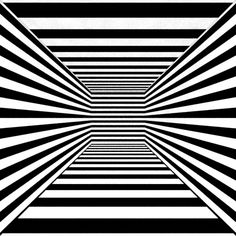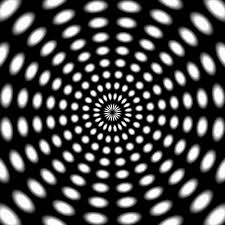|
LITR 4368 Literature of the Future |
Sample answers
for Essay 1:
|
 |
Rebecca Dyda
5/4/2016
Aliens saving the human race from themselves
In Low Tech Literature we see a society that is corrupted by its
technology, and ultimately has to learn to live and survive without it. In Alien
Contact literature we see a non-human lifeform take over our current world, and
take us away from our corrupted way of living, and “better us” to their
standards. Both Low Tech and Alien contact literature see some sort of
apocalyptic future, along with progress, and other similar traits. However, they
also have some very different traits as well. Ultimately these similarities and
differences in the two scenarios can be seen time and time again in our
literature.
When we think of Alien Contact Literature we would never think to compare
it to Low Tech literature. Most see that Alien Contact Literature favors more
High Tech Literature; however, we do not take into consideration the fact that
in some ways Alien Contact Literature is a reaction to Low Tech Literature. What
I mean by this is that in Low Tech Literature we see a society corrupted by its
own technology, forcing the people of the stories to learn to live again without
it. However, in Alien Contact Literature, we see that Aliens take us from our
corrupted worlds, worlds that can be seen as “Low Tech” compared to their “High
Tech” abilities, and in some ways “saves us” by bettering us to their higher
standards.
Some of the Low-Tech novels read in class show a society corrupted by its
own technologies, which ultimately forces the characters to start over and live
life without it. In Speech Sounds by Octavia Butler, civilization is in ruins,
and humankind loses their ability to communicate. Some can no longer read and
write, and some can no longer speak. The people of this civilization have to
communicate through sign language, and gestures that often causes conflict
through miscommunication. The people of this civilization are also in turmoil
due to their feelings of jealousy and rage caused by their handicaps and
illnesses. In this Low-Tech novel we see an Apocalyptic Future; their
civilization in ruins, whatever technology they had is gone, and they have lost
their ability to speak. This Low-Tech novel also shows how vulnerable people are
in Low Tech societies, it’s almost as though these stories show how dangerous we
are to ourselves without our current technologies distracting us from our
feelings and urges.
This
Low Tech Novel almost exactly parallels with the Low Tech/Apocalyptic novel
Parable of the Sower. In Parable of the Sower, we see a civilization that is
portrayed as some sort of Utopia in the middle of complete chaos. Eventually
this “Utopia” is destroyed, leaving the main character Lauren to go out into the
chaotic world that once surrounded her gated community, and fend for herself.
During Lauren’s time out in this chaotic world we see people turn into violent
thieves, doing whatever they can to survive, and having no real order at all.
This Low Tech/Apocalyptic future can also be seen as a novel that shows how
dangerous we are to ourselves without our technologies; however, it also shows
how more dangerous we can be to each other with our ability to communicate,
read, write, and other intelligences.
Another Low tech story that tells of humans destroying themselves is Chocco by
Ernest Callenbach. In Chocco (1994), human kind is completely wiped out by its
technology, leaving the only real living being to be a breed called “the machine
people”. In this story we see the humans not only destroy themselves with their
technology, but we see the technology in the story ultimately fail, giving the
story the “low tech” style.
As we
make our way into alien contact novels, we begin to see this idea of humans
being a danger to themselves explored further. In Alien contact novels we see
the same apocalyptic and progressive ideas that are in Low Tech literature;
however instead of the people saving themselves, aliens are the ones who do the
saving. We mainly see this idea in The Poplar Street Study. In this short story
we see aliens take over a specific street, keeping the families hostage in their
own homes. The families at first comply; however, towards the end they start to
get frustrated and begin to ask questions. The Aliens again and again assure the
civilians that they are doing these things to their best interests. Towards the
end of the story, one of the civilians, Mr. Anderson, has tested positive for
diabetes. The aliens, for his own good, take him away because he has to be
replaced. Even though they find out that their predictions are wrong, they make
Mr. Anderson a magnificent man with gleaming skin, and a singing voice.
Ultimately the Aliens in the Poplar street study take a civilization from what
seems like a “corrupted” world to them, and transforms the humans into who they
believe they should be. The aliens in the Poplar Street Study in some was saved
these people, and ultimately transformed their way of living. It’s safe to say
that after reading this story we can’t help but notice that while this book has
the same apocalyptic, and progressive characteristics, it seems to also be a
reaction to these apocalyptic stories also. Instead of humans progressing, and
taking care of themselves, the Aliens instead come in, take over, and take care
of the humans.
I
think in some ways the alien contact novels, short stories, and movies are
reactions to the apocalyptic theme stories and instead show that human life
could eventually end through the takeover of another lifeform. In Ashley
Schaller final she stated, “An alien invasion has yet to occur in real life, but
movies portray the results as a disaster” (2007), while this idea may be
portrayed in movies, in our texts we see this “disaster” transformed into a
“miracle”. We see the Aliens transform from evil beings, to lifeforms that are
here to save the human race from themselves




